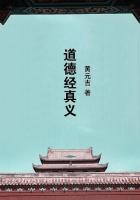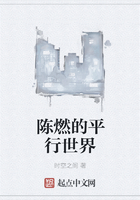WHAT HAPPENED TO CANDIDE
AND MARTIN IN
FRANCE
Candide stayed no longer at Bordeaux than was necessary to dispose of a few of the pebbles he had brought from El Dorado, and to provide himself with a post-chaise for two persons, for he could no longer stir a step without his philosopher Martin. The only thing that give him concern was being obliged to leave his sheep behind him, which he intrusted to the care of the Academy of Sciences at Bordeaux, who proposed, as a prize subject for the year, to prove why the wool of this sheep was red;and the prize was adjudged to a northern sage, who demonstrated by A plus B, minus C, divided by Z, that the sheep must necessarily be red, and die of the mange.
In the meantime, all travelers whom Candide met with in the inns, or on the road, told him to a man, that they were going to Paris.
This general eagerness gave him likewise a great desire to see this capital; and it was not much out of his way to Venice.
He entered the city by the suburbs of Saint-Marceau, and thought himself in one of the vilest hamlets in all Westphalia.
Candide had not been long at his inn, before he was seized with a slight disorder, owing to the fatigue he had undergone. As he wore a diamond of an enormous size on his finger and had among the rest of his equipage a strong box that seemed very weighty, he soon found himself between two physicians, whom he had not sent for, a number of intimate friends whom he had never seen, and who would not quit his bedside, and two women devotees, who were very careful in providing him hot broths.
"I remember", said Martin to him, "that the first time I came to Paris I was likewise taken ill. I was very poor, and accordingly Ihad neither friends, nurses, nor physicians, and yet I did very well."However, by dint of purging and bleeding, Candide's disorder became very serious. The priest of the parish came with all imaginable politeness to desire a note of him, payable to the bearer in the other world. Candide refused to comply with his request; but the two devotees assured him that it was a new fashion. Candide replied, that he was not one that followed the fashion. Martin was for throwing the priest out of the window. The clerk swore Candide should not have Christian burial. Martin swore in his turn that he would bury the clerk alive if he continued to plague them any longer. The dispute grew warm; Martin took him by the shoulders and turned him out of the room, which gave great scandal, and occasioned a proces-verbal.
Candide recovered, and till he was in a condition to go abroad had a great deal of good company to pass the evenings with him in his chamber. They played deep. Candide was surprised to find he could never turn a trick; and Martin was not at all surprised at the matter.
Among those who did him the honors of the place was a little spruce abbe of Perigord, one of those insinuating, busy, fawning, impudent, necessary fellows, that lay wait for strangers on their arrival, tell them all the scandal of the town, and offer to minister to their pleasures at various prices. This man conducted Candide and Martin to the playhouse; they were acting a new tragedy. Candide found himself placed near a cluster of wits: this, however, did not prevent him from shedding tears at some parts of the piece which were most affecting, and best acted.
One of these talkers said to him between acts, "You are greatly to blame to shed tears; that actress plays horribly, and the man that plays with her still worse, and the piece itself is still more execrable than the representation.
The author does not understand a word of Arabic, and yet he has laid his scene in Arabia, and what is more, he is a fellow who does not believe in innate ideas. Tomorrow I will bring you a score of pamphlets that have been written against him.""Pray, sir", said Candide to the abbe, "how many theatrical pieces have you in France?""Five or six thousand", replied the abbe.
"Indeed! that is a great number", said Candide, "but how many good ones may there be?""About fifteen or sixteen."
"Oh! that is a great number", said Martin.
Candide was greatly taken with an actress, who performed the part of Queen Elizabeth in a dull kind of tragedy that is played sometimes.
"That actress", said he to Martin, "pleases me greatly;she has some sort of resemblance to Miss Cunegonde. I should be very glad to pay my respects to her."The abbe of Perigord offered his service to introduce him to her at her own house. Candide, who was brought up in Germany, desired to know what might be the ceremonial used on those occasions, and how a queen of England was treated in France.
"There is a necessary distinction to be observed in these matters", said the abbe. "In a country town we take them to a tavern; here in Paris, they are treated with great respect during their lifetime, provided they are handsome, and when they die we throw their bodies upon a dunghill.""How?" said Candide, "throw a queen's body upon a dunghill!""The gentleman is quite right", said Martin, "he tells you nothing but the truth. I happened to be at Paris when Miss Monimia made her exit, as one may say, out of this world into another. She was refused what they call here the rites of sepulture; that is to say, she was denied the privilege of rotting in a churchyard by the side of all the beggars in the parish.
They buried her at the corner of Burgundy Street, which must certainly have shocked her extremely, as she had very exalted notions of things.""This is acting very impolitely", said Candide.
"Lord!" said Martin, "what can be said to it? It is the way of these people.















